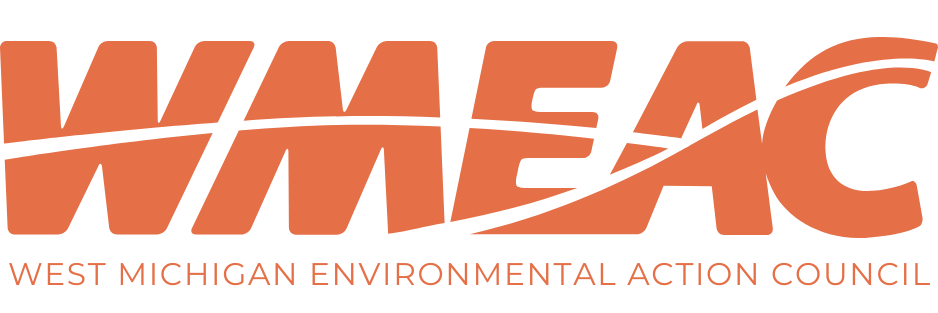By: Kat Lykins (with updates by Bill Wood, Executive Director of West Michigan Environmental Action Council)
As seen in Grand Haven Tribune
(Note: with the [recent] 2022 midterm elections, we chose to revisit an older piece, updated with the results of a phone banking project to reflect climate change opinions in Ottawa and Muskegon Counties)
Rob Nixon, Princeton University professor and a leading author and writer on the environment and climate change, has called climate change a “slow violence.” Oftentimes, rather than urgent and unavoidable events, environmental destruction and its aftermath takes place “gradually and invisibly.” This, in part, may be due to many who care about the environment, but fail to take it to the ballot box, or in other words, be an environmental voter. But this may be changing. A new wave of voters has begun to cast their ballots with the environment as a headlining cause for concern, and in particular, there’s a new era of climate voters.
Proof of this is evident in our country’s recent elections. According to a September 2020 NPR PBS NewsHour Maris Poll, in 2016, only 2% of U.S. voters said climate change was the issue they cared about most. In 2018, that number more than tripled to 7% of voters and in the Fall of 2020, 12% of likely voters said climate change was their number one priority. Grand Haven is no exception, with the very public community engagement in the area’s current energy decisions and interest in moving towards a more sustainable future, including a specific focus on voting for candidates who prioritize the environment.
In early 2021, West Michigan Environmental Action Council were the recipients of a grant that provided phone banking to over 20,000 residents of Ottawa and Muskegon Counties. The criteria were simple – registered voters, regardless of party, who had voted in the 2018 and 2020 elections, would be called and asked a series of 4 questions. These questions were as follows:
1)“Climate change is affecting weather patterns in Michigan” Yes, no, or no opinion.
2) “Climate change is affecting the water levels of Lake Michigan” Yes, no, or no opinion.
3) “It is the responsibility of local governments to protect our communities” True or false
4) “Local governments should take action to prepare their communities for the effects of climate change.” True or false
1,405 people took the survey in Ottawa County. 74% answered “yes” to question 1, 64% answered “yes” to question 2, 74% answered “true” to question 3, and 68% answered “yes” to question 4. Another 1083 responded to the survey in Muskegon County, with almost identical results. 216 people responded between the City of Grand Haven and Grand Haven township, with the “yes/true” responses even being slightly higher.
These numbers may be surprising. West Michigan isn’t Berkeley, California or some other bastion of “leftist” thought. But what the answers to this survey reveal is that climate change is a real concern that is cutting across party lines, and regardless of party affiliation, real, registered voters (who voted in the past 2 elections) believe that those whom they elect have a responsibility to start preparing the communities they represent for the coming disruptions to our planet.
The midterm elections are coming up, climate voters will be making their choices, and many young people who care deeply about the environment and climate change will soon have the opportunity to cast their first votes. Leadership on climate change can come from both sides of the aisle. As the war in Ukraine has laid bare, energy independence is a matter of national security. Emerging technologies continue to make the extraction and production of fossil fuel derived energy seem archaic (and expensive) by comparison. Voters in Ottawa County know that we are seeing the effects of climate change right here in West Michigan, and they want their elected leaders to take action.

